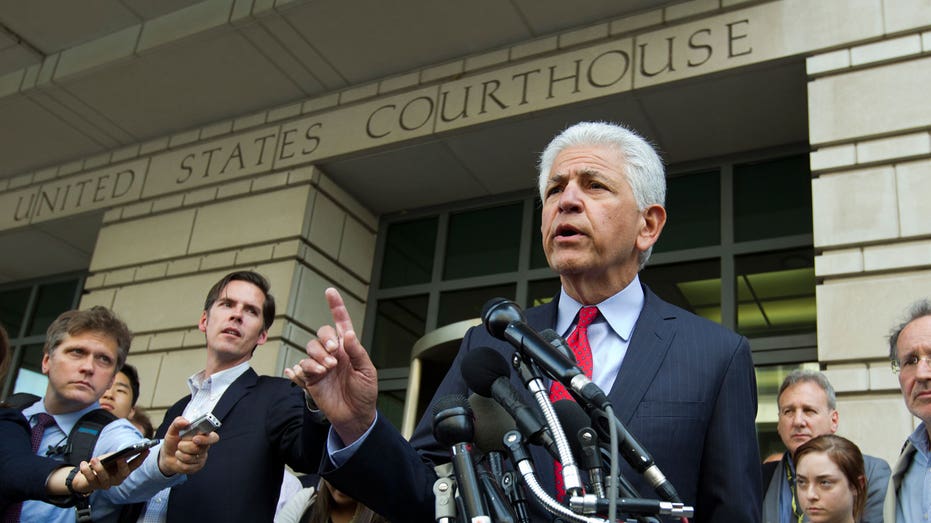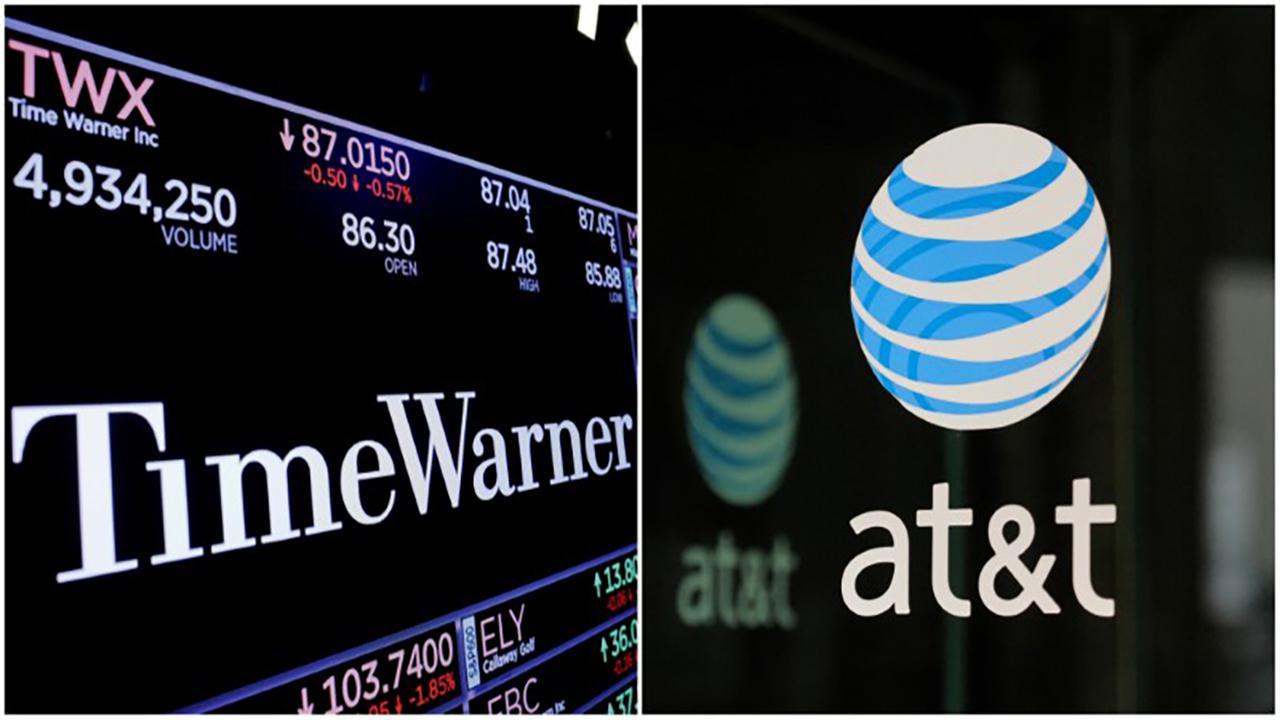AT&T prevails as Time Warner takeover gets OK from judge
AT&T on Tuesday won a federal judge’s approval for its $85 billion deal to acquire Time Warner, prevailing over the federal government.
U.S. District Judge Richard Leon rejected the government’s argument that a combination of AT&T and Time Warner would give the telecom giant an unfair advantage over rival cable companies. AT&T expects to complete the deal by June 20.
While the U.S. Department of Justice could choose to appeal the decision, Leon warned that government officials should “have the good judgement [and] wisdom” not to seek a stay to temporarily prevent the deal from moving forward. The judge added that a stay would be a burden to AT&T, which has paid billions in its legal defense of the deal.
“This decision was a sound and proper rejection” of the government’s argument, Daniel Petrocelli, AT&T’s lead attorney on the case, said outside the court building.
Petrocelli, of O’Melveny & Myers LLP, is a Hollywood heavyweight trial lawyer who also slammed the DOJ for dragging out the deal.
“We are pleased that, after conducting a full and fair trial on the merits, the court has categorically rejected the government's lawsuit to block our merger with Time Warner,” AT&T said in a statement. “We thank the Court for its thorough and timely examination of the evidence, and we compliment our colleagues at the Department of Justice on their dedicated representation of the government.”
AT&T added that its acquisition of Time Warner will “give consumers video entertainment that is more affordable, mobile, and innovative.”
| Ticker | Security | Last | Change | Change % |
|---|---|---|---|---|
| T | AT&T INC. | 27.13 | -0.18 | -0.66% |
| TWX | NO DATA AVAILABLE | - | - | - |
The deal will proceed without any conditions. In other words, the ruling won’t require AT&T to sell any assets, a move that signals the weakness of the government’s case.
Including debt, the merger will be the 12th largest deal ever recorded, according to Thomson Reuters. It’s also the fourth largest transaction in the telecom, media and entertainment industries.
AT&T, the mobile carrier and broadband provider that also owns DirecTV, reached an agreement to take over Time Warner in October 2016. A year later, the Department of Justice filed a lawsuit to block the deal, arguing that AT&T’s ownership of Time Warner would limit competition and increase costs for consumers in the form of pricier cable bills. The deal includes Time Warner’s stable of media content, including the Warner Bros. film studio and cable television networks such as HBO and CNN.
Wall Street and industry analysts have closely followed the legal battle. Antitrust regulators have historically opposed so-called horizontal mergers between companies operating in the same business area.
The Trump administration’s attempt to block the AT&T-Time Warner deal, a vertical merger, was seen as a potential precedent-setting case that would reshape deal-making across the media and telecom sectors.
“We are disappointed with the court’s decision today,” the Department of Justice said in a statement. “We continue to believe that the pay-TV market will be less competitive and less innovative as a result of the proposed merger between AT&T and Time Warner. We will closely review the Court’s opinion and consider next steps in light of our commitment to preserving competition for the benefit of American consumers.”

AT&T Attorney Daniel Petrocelli speaks during a news conference, Tuesday, June 12, 2018, in Washington. (AP Photo/Jose Luis Magana / Associated Press)
With AT&T prevailing in its defense of the deal, the odds that T-Mobile’s purchase of Sprint will receive antitrust approval could rise. The case also may impact Comcast’s expected pursuit of some 21st Century Fox assets. Walt Disney agreed to pay $52 billion for Fox’s film and television businesses, not including cable news and sports networks, but Comcast is preparing a competing bid.
21st Century Fox is the parent company of FOX Business and Fox News.
AT&T now moves forward with a deal designed to expand the company’s businesses beyond mobile, broadband and pay-TV services. Upstarts like Netflix have spent heavily to develop TV shows and movies in-house. Cable, satellite and mobile companies believe they also need to acquire their own content in order to compete.
| Ticker | Security | Last | Change | Change % |
|---|---|---|---|---|
| FOXA | FOX CORP. | 64.78 | -1.14 | -1.73% |
| DIS | THE WALT DISNEY CO. | 108.69 | +3.71 | +3.53% |
| CMCSA | COMCAST CORP. | 31.37 | +0.52 | +1.69% |
During the trial, CEO Randall Stephenson told the court that AT&T plans to offer a free bundle of Time Warner channels to mobile users who have unlimited data plans. Time Warner’s portfolio includes TBS, TNT and HBO, the most popular premium network in the U.S.
AT&T also argued that acquiring Time Warner would allow the company to better compete in digital advertising against tech giants like Facebook and Google.




















